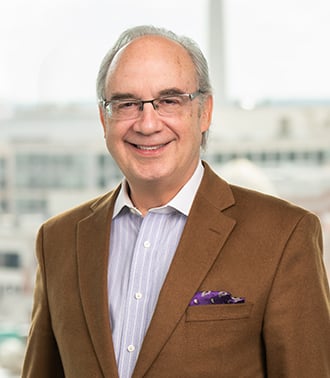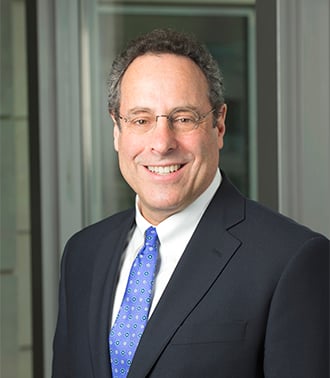U.S. Takes Significant Steps to Relax Cuba Sanctions, but Many Restrictions Remain
On December 17, 2014, President Barack Obama announced policy changes designed to chart a new course in U.S. relations with Cuba.1 These significant new measures include the U.S. resuming diplomatic relations with Cuba for the first time since 1961 and the President instructing the Secretary of State to review Cuba's status as a State Sponsor of Terrorism. The President also announced a relaxation of U.S. sanctions on Cuba and related export controls, including loosening of existing restrictions on U.S. travel and exports to Cuba and allowing for provision of certain Cuba-related telecommunications and financial services, as detailed below.
These changes have the potential to increase certain types of U.S. trade with Cuba, but Cuba is not fully open for U.S. business. The recently announced changes do not lift the U.S. embargo on Cuba. President Obama has declared his intention to exercise the full scope of his executive powers and to work with Congress to normalize relations with Cuba. However, his executive powers are limited by existing statutes and Congress may be unwilling to work with the President on this issue. The President has limited authority to lift many of the sanctions on Cuba because the Cuban Liberty and Democratic Solidarity (LIBERTAD) Act of 1996, also known as the Helms-Burton Act, permits the President to lift the embargo only if certain conditions relating to establishment of a democratic government in Cuba are met.
The devil will be in the details. The full extent of the recently announced sanctions relief will be outlined in the new regulations issued by the U.S. Treasury's Office of Foreign Assets Control (OFAC) and the Department of Commerce's Bureau of Industry and Security (BIS). In the past, the final regulations issued by the relevant agencies have not always lived up to the President's lofty rhetoric on Cuba. For example, President Obama took a number of actions to ease U.S. sanctions on Cuba in 2009 and 2011 that resulted in incremental reforms, but did not result in the substantial change for which some had initially hoped.2
Six major elements of the new changes to U.S. sanctions on Cuba are outlined below:
1. Travel, Cigars and Rum
OFAC will ease travel restrictions by removing the requirement that certain categories of travelers-who had previously been permitted to travel to Cuba-apply for a specific license from OFAC before going to Cuba. Such travelers may instead rely on a general license, which does not require filing paperwork with OFAC beforehand, if they meet the requirements set out in OFAC's regulations.
However, general tourist and business travel will remain prohibited. Travel from the U.S. to Cuba will still only be authorized if the person falls into one of the twelve existing categories of authorized travelers under the Cuban Assets Control Regulations (CACR).3 Such travelers will be able to make arrangements through any service provider that complies with OFAC regulations governing travel services to Cuba, and general licenses will authorize provision of such services.
Licensed U.S. travelers to Cuba will be permitted to import $400 worth of merchandise per person into the U.S. This includes the import of up to $100 per person of tobacco and alcohol combined. While this new provision will allow Cuban cigars and rum to be legally imported into the U.S., such imported goods are for personal consumption only and may not be used for resale or commercial purposes.
2. Telecommunications
Cuba has Internet penetration of about five percent-one of the lowest rates in the world. The Obama administration and the Cuban government have expressed interest in increasing Internet connectivity for Cubans.
The forthcoming U.S. regulations are expected to authorize U.S. telecommunications companies to operate in Cuba.4 Telecommunications providers will be allowed to establish the necessary mechanisms, including infrastructure, in Cuba to provide commercial telecommunications and Internet services.
The Obama administration also plans to ease restrictions to increase communication and access to communication technology for Cubans. Telecommunications and Internet linkages between the U.S. and Cuba, including infrastructure related to those linkages in Cuba, are expected to be authorized without requiring a specific license from OFAC.
3. Exports of Certain Goods and Services, Including Certain Consumer Communications Devices, Software, Applications, Hardware and Services
Most exports from the U.S. to Cuba are prohibited today, with limited exceptions for items such as medicine and agricultural products. For example, export to Cuba of almost all electronic devices and software that contain encryption is prohibited unless specifically licensed or eligible for an existing general license. This includes products such as those that contain the type of encryption found in many Microsoft, Android and Apple iOS products, and many other consumer communications devices.
BIS and OFAC are expected to issue regulations to facilitate the export of telecommunications devices and equipment, including related hardware, software and services, in order to enhance communications to and from Cuba and among the Cuban people. This is expected to include the commercial sale of certain consumer communications devices, related software, applications, hardware and services, and items for the establishment and update of communications-related systems. In addition to the exports of telecommunications equipment and consumer communications devices discussed above, BIS and OFAC will issue regulations authorizing the export of certain building materials or private residential construction, goods for use by private sector Cuban entrepreneurs, and agricultural equipment for small farmers. The goal of these relaxations of U.S. export controls is to make it easier for the Cuban private sector to have access to certain lower-priced goods to improve their living standards and gain greater economic independence from the state.
4. Increase Remittance Levels
OFAC will raise remittance levels from $500 to $2,000 per quarter for general donative remittances to Cuban nationals, excluding certain officials of the government or the Communist party. Donative remittances for humanitarian projects, for the Cuban people, and for the development of private businesses in Cuba will now be generally licensed. Remittance forwarders will no longer require a specific license.
5. Financial Institutions
U.S. banks and financial institutions will be permitted to open correspondent accounts at Cuban financial institutions to facilitate the processing of authorized transactions, including in the areas of agriculture, medicine and medical products, and telecommunications.
U.S. financial institutions will also be authorized to facilitate the use of U.S. credit and debit cards by travelers in Cuba, which is currently prohibited. The regulatory definition of the statutory term "cash in advance" will be revised to specify that it means "cash before transfer of title" in order to provide more efficient financing of authorized trade with Cuba.
6. Decrease Extraterritorial Application of Cuban Sanctions
The U.S. sanctions on Cuba under the CACR apply broadly, not only to U.S. persons and entities incorporated in the U.S., but also to foreign entities that are "owned or controlled" by such U.S. persons.5 Those sanctions continue in effect with respect to dealing with Cuba itself, as well as businesses and individuals in Cuba. However, under President Obama's new policy, such U.S.-owned or -controlled entities in third countries will have a general license to provide services to, and engage in certain financial transactions with, Cuban individuals in third countries. In addition, general licenses will unblock the accounts at U.S. banks of Cuban nationals who have relocated outside of Cuba; permit U.S. persons to participate in third-country professional meetings and conferences related to Cuba; and allow foreign vessels to enter the U.S. after engaging in certain humanitarian trade with Cuba, among other measures.
As with the other policy statements, the precise effect of this general license cannot be measured until OFAC issues the general license, outlining any conditions on U.S.-owned or -controlled foreign entities in using the license. The U.S. may consider removing additional restrictions through its regulatory updates.
President Obama's December 17, 2014 announcement represents a significant shift in U.S. policy toward Cuba that will lead to major changes, such as the U.S. re-establishing an embassy in Havana and engaging in high-level diplomatic exchanges with the Cuban government. Moreover, if the Secretary of State decides to remove Cuba from the list of State Sponsors of Terrorism, which appears likely, restrictions regarding U.S. foreign assistance, defense exports and sales, and exports of dual-use items may be lifted. In the interim, the U.S. may be more open to licensing individual transactions under its current authority.
However, the full impact of the relaxation of sanctions remains to be seen. As noted above, the President's power to lift the embargo on Cuba is limited by statute, including the Helms-Burton Act and the Cuban Democracy Act of 1992. The executive branch retains certain licensing authority under the CACR, but some in Congress would likely argue that OFAC cannot use its licensing authority to effectively lift the embargo unless the conditions related to establishment of a representative democracy in Cuba are met under the Helms-Burton Act. Key members of the relevant congressional committees strongly oppose Obama's recent Cuba-related policy changes.6 It is likely that the Republican-controlled Congress will hold hearings on Cuba in 2015, and Congress could also take up legislation to undo the President's recent executive actions in a number of areas like Cuba and immigration.
Moreover, companies interested in doing business with Cuba may also face challenges in U.S. courts related to claims to garnish Cuban assets to satisfy judgments related to terrorism and the nationalization of U.S. property in Cuba. In the past, plaintiffs have attempted to seize assets in which the Cuban government has an interest, including payments by U.S. companies to Cuban agencies and instrumentalities, to satisfy such default judgments. The Obama administration has yet to resolve this garnishment issue.
There may be new opportunities for U.S. companies to do business in Cuba in the future as a result of the Obama administration's recent policy changes, but transactions involving Cuba remain highly regulated. Existing U.S. sanctions and export controls remain in place until new regulations are issued by OFAC and BIS, and companies should carefully analyze the application of the relevant regulations before proceeding with business in Cuba.
-
Fact Sheet: Charting a New Course on Cuba, Office of the Press Secretary, The White House (Dec. 17, 2014), available here.
-
Fact Sheet: Treasury Amends Cuban Assets Control Regulations To Implement the President's Initiative on Family Visits, Remittances, and Telecommunications, Press Center, U.S. Dept. of the Treasury (Sept. 3, 2009), available here. Press Release: Reaching Out to the Cuban People, Office of the Press Secretary, The White House (Jan. 14, 2011), available here.
-
These twelve categories are: (1) family visits; (2) official business of the U.S. government, foreign governments, and certain intergovernmental organizations; (3) journalistic activity; (4) professional research and professional meetings; (5) educational activities; (6) religious activities; (7) public performances, clinics, workshops, athletic and other competitions, and exhibitions; (8) support for the Cuban people; (9) humanitarian projects; (10) activities of private foundations or research or educational institutes; (11) exportation, importation, or transmission of information or information materials; and (12) certain export transactions that may be considered for authorization under existing regulations and guidelines.
-
Background Conference Call on Policy Changes in Cuba and the Release of Alan Gross, Office of the Press Secretary, The White House (Dec. 17, 2014), available here.
-
See 31 C.F.R. § 515.321(d); see also 31 C.F.R. § 515.559 (recognizing prohibitions against U.S.-owned or -controlled foreign firms and restricting licenses for certain transactions to specific circumstances pursuant to the Cuban Democracy Act).
-
Sen. Marco Rubio (R-FL) recently stated, "I'm going to continue to oppose the … Obama-Paul foreign policy on Cuba because I know it won't lead to freedom and liberty for the Cuban people, which is my sole interest here." Rubio Slams 'Obama-Paul' Cuba Policy, Politico (Dec. 21, 2014), available here.
Rep. Ileana Ros-Lehtinen (R-FL) wrote, "President Obama's argument for unilaterally reversing U.S.-Cuba policy rests on the false premise that engagement with dictators and terrorists will somehow get them to change their ways." Obama's Futile Overtures to Cuba, The Washington Times (Dec. 19, 2014), available here.






